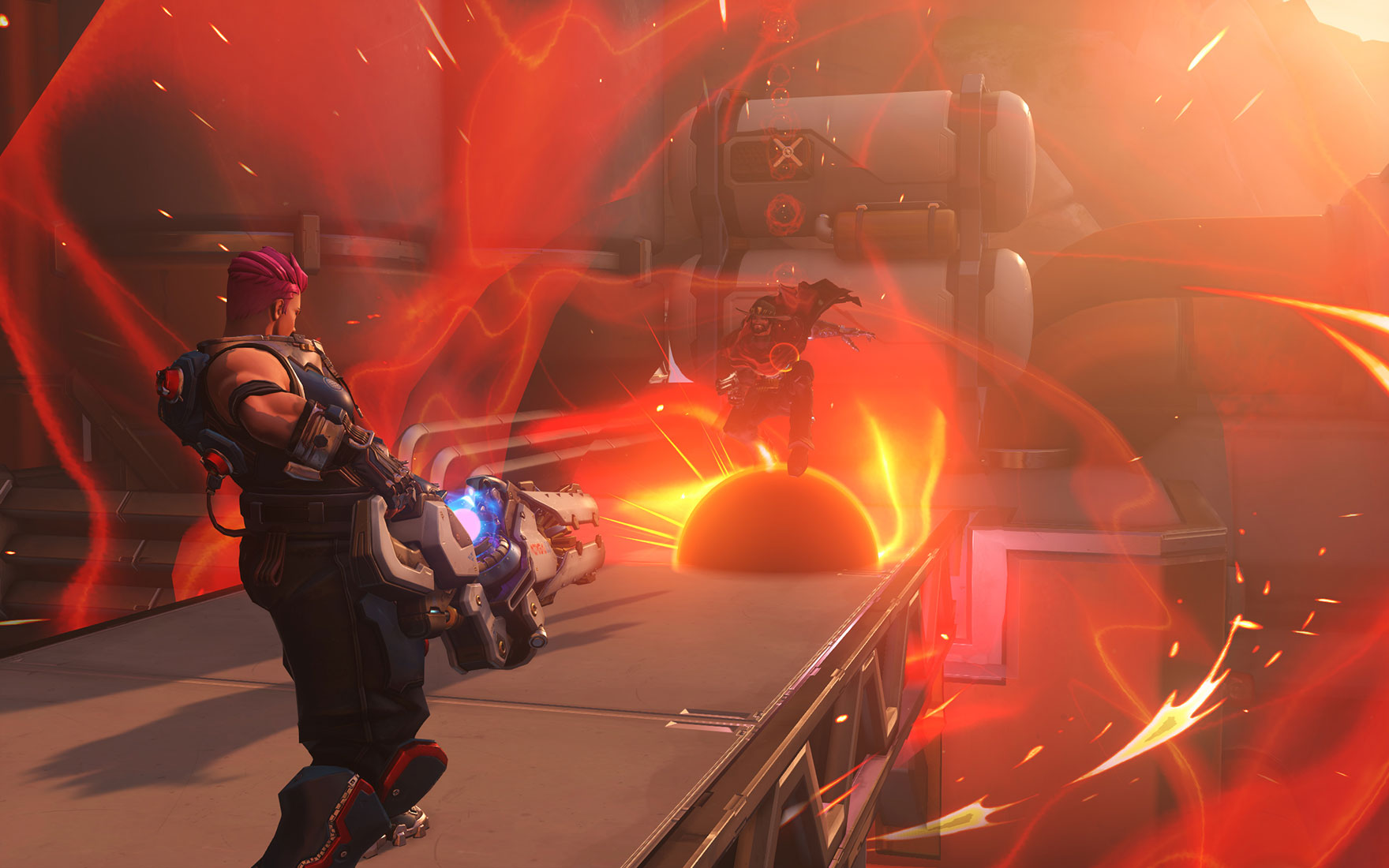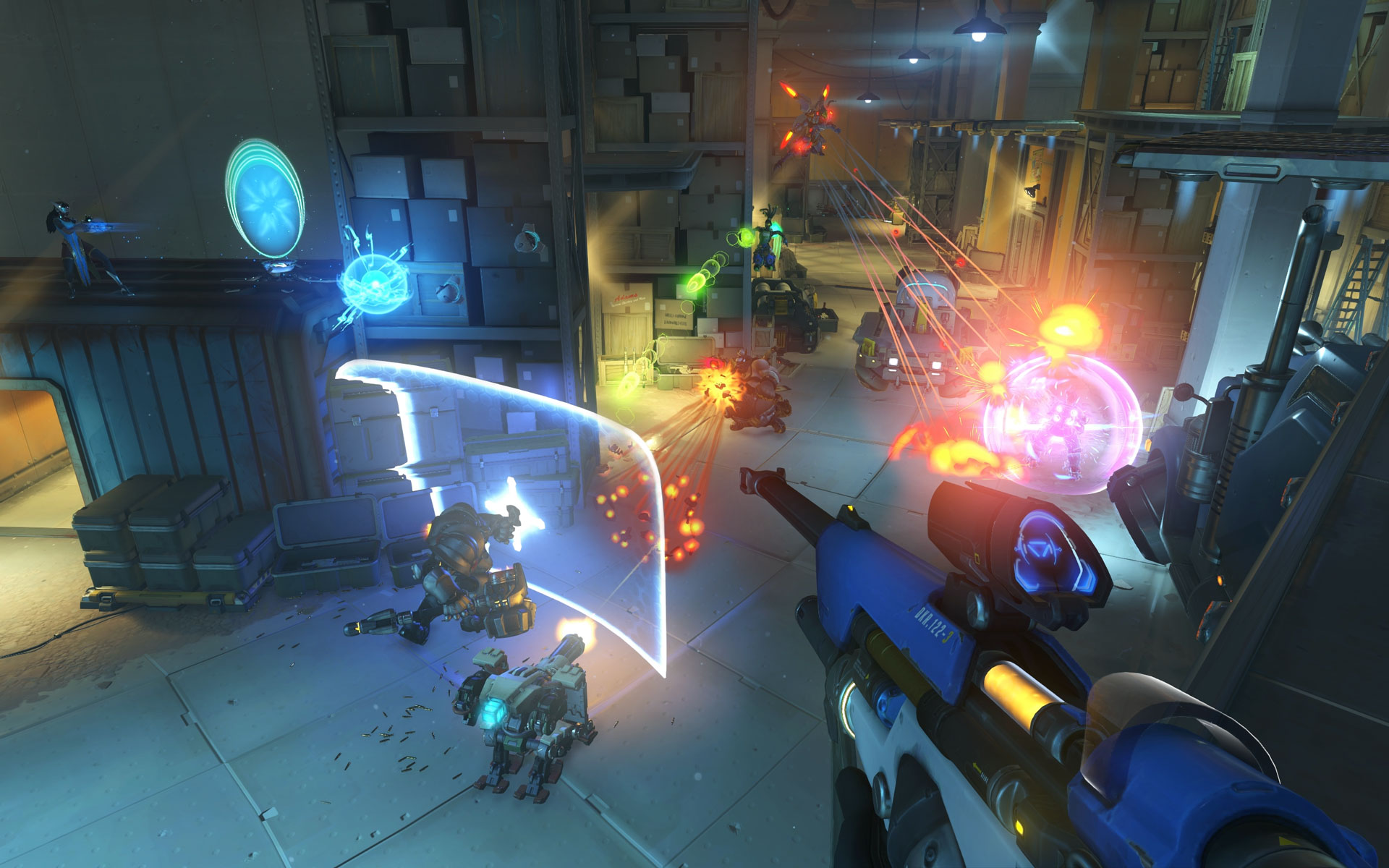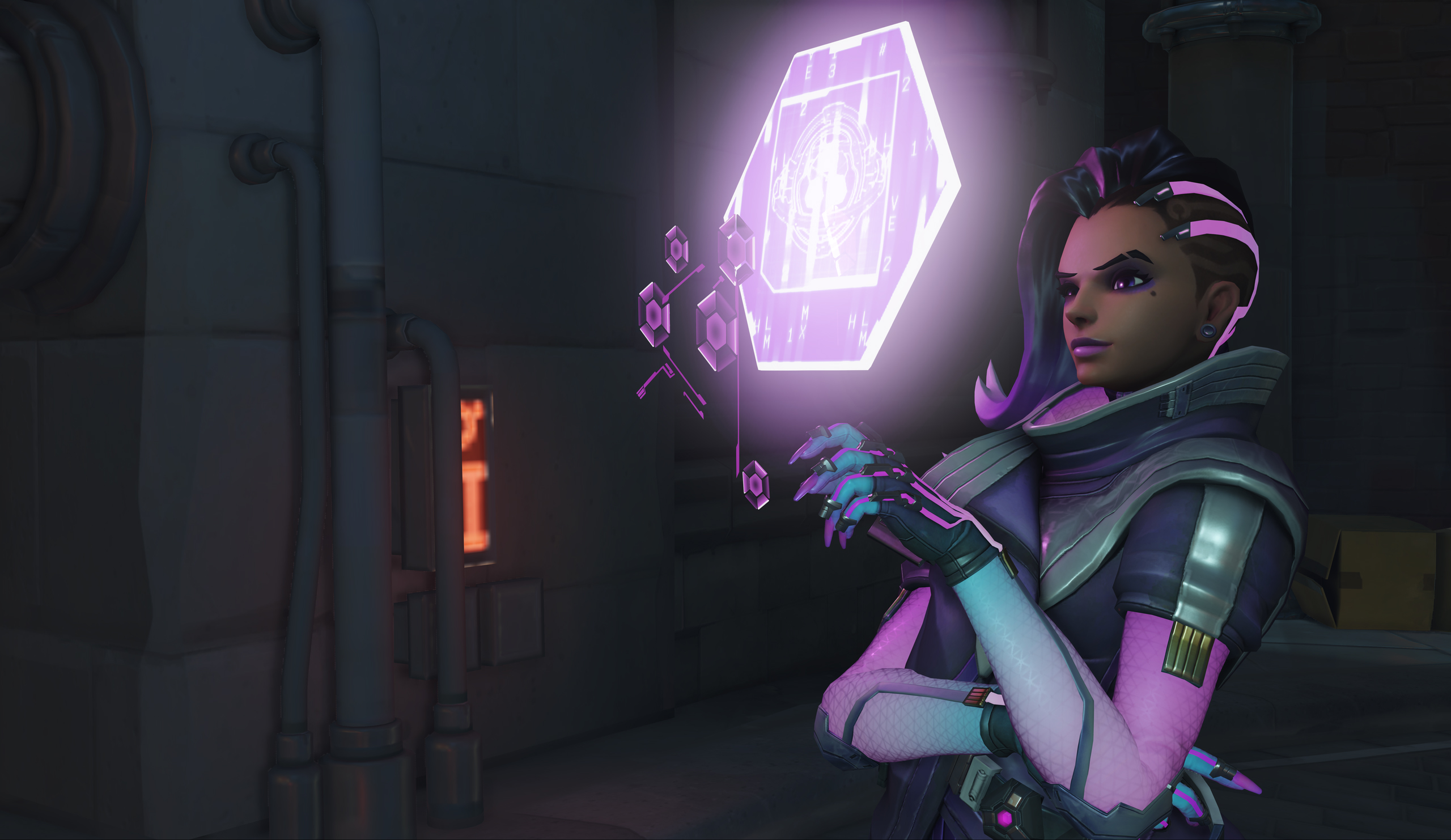Recently, Blizzard released a developer update titled Play Nice, Play Fair, which attempted to address Overwatch’s fundamental problems with toxicity.
Game developer Jeff Kaplan described the issue as a “rising tide,” and promised future improvements to the reporting system (which was just added to the console versions of the game, more than a full year after launch).
Other than that, though, the update was not only lacklustre but appeared to miss the point entirely.
Slaps on the wrist
Kaplan addressed the fact that the report function is widely seen as useless, saying that this perception “couldn’t be further from the truth.” As evidence, he stated that disciplinary action had been taken against over 480,000 accounts.
480,000. Almost half a million players have been disciplined – about a thousand per day since the game’s release. Far from Kaplan’s claim, it doesn’t seem like the reporting feature is a useful deterrent.

Moreover, exactly what disciplinary action has been taken? Kaplan recently revealed in a forum post that one account had accrued 2247 reports, calling it “one of the worst offending accounts we’ve seen.” Their punishment was a week’s suspension. It hardly seems likely that this would stop this player or any other who now knows what lenient repercussions even the most toxic players face. Instead, it actually serves as a reassurance that no real action will be taken against them.
In the developer update, Kaplan states: “Our highest level philosophy is, if you’re a bad person doing bad things in Overwatch, we don’t want you in Overwatch.” But this runs contrary to all the evidence we have about how Blizzard handles bad people doing bad things in their game.
A toxic community
That the disciplinary system doesn’t work and needs more than the “tuning and adjusting” promised in the update is self evident. What is more insidious is Kaplan’s apparent attitude to toxicity in the Overwatch community and in video games more widely. Specifically, he claims “we’ve all…taken part in this behaviour.”
This is not only untrue but astonishingly tone deaf, especially considering that it comes in the same week that many gamers jumped to defend Pewdiepie’s indefensible use of the N-slur (content warning: the word is used in full at the link). Kaplan now falls into a dangerous camp; those who think that there is some sort of inevitability – and therefore acceptability – to angry outbursts of hatred.
We haven’t all taken part in this behaviour. The reason that Kaplan thinks that we have is that, as he admits twice in the video, he has done so. Indeed, Kaplan has infamously “said mean things online” – like this insult ridden tirade (that includes the R-slur) he went on as an Everquest player. Now, people change, and Kaplan may have, but that he so casually admits to having “said mean things to [his] teammates” is infuriating regardless of how much milder they are than his earlier online behaviour.
“Take a deep look inwards”
– Jeff Kaplan
Firstly, it legitimises and affirms toxic players watching. As the face of Overwatch, Kaplan leads by example, and by bringing up his own transgressions as something to be overlooked he minimises everyone’s. Those who abuse other players can now continue safe in the knowledge that the game’s lead developer thinks that it’s normal, not particularly shameful behaviour. If everyone, even Kaplan, does it, why should they stop?

More than this, that not one person involved in the production of this video saw an issue with having the face of the franchise admit that he’s insulted his teammates demonstrates the deep roots of Overwatch’s problem, ones that will affect every step of their attempts to improve.
For example, it makes perfect sense that punishments are so lenient if toxicity is viewed as a mistake that anyone might make. And how can a lower ranking developer approach Kaplan about potential solutions to insults they were subjected to in the game knowing that it might have been Kaplan himself throwing them? That he is surrounded by people who think that fact is minor enough to drop offhandedly into a developer update?
Any successful approach to combating toxicity must centre those most affected. This video not only demonstrates a failure to do that, but shows that the space is instead dominated by those who are a part of the problem. It is suddenly even less surprising that changes have been slow coming and ineffectual.
Priorities
Kaplan ends by claiming that implementing anti-toxicity measures has slowed down the game’s other development. He uses the example that developers working on match replay and history systems had to be rerouted to create the console reporting system.
I understand that it’s frustrating to have to work on reducing bad behaviour in the game rather than new gameplay features, but it’s hardly a surprising necessity. In fact, Overwatch’s toxicity problem was so predictable that the fact that consoles went 15 months without a reporting system – 15 months in which 340,000 people were disciplined from PC reports – is ultimately unforgivable.

Kaplan can promise that improvements are being worked on, but it hardly engenders hope to hear that there is no dedicated team working on one of the game’s biggest issues. If it took 15 months to reassign personnel to the most basic anti-toxicity system there is on console platforms, how long can we expect any further improvements to take? Who will work on them if developers have other mechanics to implement and management comprises those who aren’t particularly invested in creating fixes?
“We’re all here to have fun, we want Overwatch to be a really great place,” says Kaplan of the community. It’s another falsehood. There are those who don’t care about causing harm or actively want to do so, and this developer update does nothing but encourage them.
Jay Castello
Latest posts by Jay Castello (see all)
- Assassin’s Creed: Origin’s Discovery Tour Mode is Great - February 23, 2018
- Celeste’s Assist Mode Brings Welcome Accessibility Options - January 25, 2018
- Overwatch Finally Sent Me A Notification About an Abuse Report - January 12, 2018
